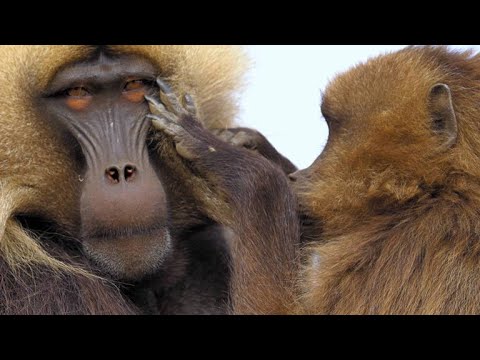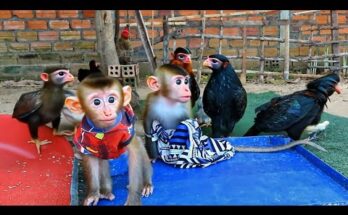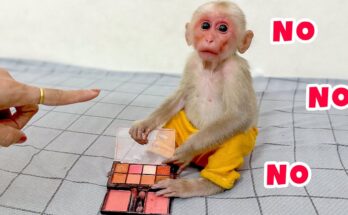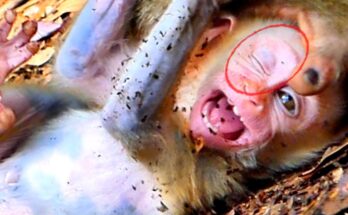
In the dramatic highlands of Ethiopia, love isn’t always peaceful—and in the case of gelada baboons, it can turn ferocious. In one startling encounter, a dominant male gelada discovers that one of his trusted females has mated with a rival. The result? A fiery explosion of emotion that mirrors human heartbreak, jealousy, and rage.
Geladas, the only grass-eating primates, live in tightly knit social units composed of one dominant male and several females—his “harem.” These groups form larger bands, with complex social interactions and strict hierarchies. For the dominant male, maintaining control over his group isn’t just about leadership; it’s about loyalty, dominance, and reproduction.
When a female secretly mates with another male—usually a younger outsider waiting for a chance to rise in the ranks—it’s more than a romantic betrayal. It’s a threat to the dominant male’s position, his genetic legacy, and his pride.
The scene unfolds like a soap opera set in the wild. The alpha male catches wind—through scent or behavior—that a rival has been sneaking around his troop. He scans the faces of his companions, alert and agitated. Then, all at once, he lunges, teeth bared, fur bristling, and fury unleashed. He’s not just attacking the rival; he’s delivering a warning to every member of the group: betrayal will not go unpunished.
This intense outburst may seem excessive, but in gelada society, it’s a matter of survival. If a dominant male shows weakness—if he’s unable to protect or control his harem—he risks being overthrown. Younger males are always waiting for their opportunity to challenge the top baboon. A successful coup means a new leader, and sometimes the violent killing of the previous male’s infants, a brutal reset of reproductive power.
Females, on the other hand, are not passive players. They sometimes initiate mating with outsiders, especially if they sense their current leader is growing weaker. These secret liaisons are a form of biological strategy—ensuring the survival of their future offspring by aligning with stronger or more genetically diverse mates.
The emotional storm that follows such a betrayal is one of the most compelling examples of animal behavior that mirrors human relationships. Jealousy, rage, heartbreak, competition—it’s all there, played out in the open fields and rocky cliffs of East Africa.
Filmmakers and primatologists alike are fascinated by the gelada’s ability to express emotion with such depth. From their expressive faces to their vocalizations—often described as “talking like humans”—geladas offer an extraordinary window into the evolution of social behavior.
In this wild world, loyalty is expected, betrayal is punished, and status is everything. The dramatic fallout from one forbidden affair reminds us that even in the animal kingdom, love and loyalty come with high stakes—and emotions run deep.


